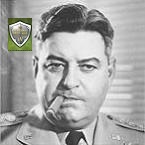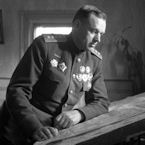RFalvo69
Posts: 1380
Joined: 7/11/2013
From: Lamezia Terme (Italy)
Status: offline

|
quote:
ORIGINAL: Curtis Lemay
quote:
ORIGINAL: RFalvo69
What is "historicity" if not a "scenario" played once - and thus not comparable with anything similar?
We will never know how the Allies' performance in '44-'45 fell on an hypothetical "probability curve". Maybe they rolled two six-sided dice, were unlucky, and got a "3". Maybe had Market-Garden been a bit more lucky they could have been in Berlin for Christmas. Maybe, had the campaign be played ten times, we would have discovered that the Allies won the war earlier eight times out of them. We will never know.
What we do know is that "the historical result was 3". So we build a top-down model that has 3 as the average: two six-sided dice with only 1s and 2s on their faces. This way we concede that the Allies can got a "2" or a "4", with the historical "3" as the most probable result. But we can't refuse the idea that the model is skewed: you can't shop it around as "correct", because we can't compare what it models (i.e. the real campaign) with anything. It was artificially built to get a specific result.
They were rolling a billion dice. That limits the standard deviation a bunch. There's no way anyone can deny that my France 1944 playtest results were spectacular!
Again, no.
Let's say that you build your model to simulate the '44-'45 Campaign in the West. You input in it your best understanding of a variety of factors: from weapon performances, to supply and supply net problems, to various units proficiencies, to anything else you think that can have an impact on the end result. You then run the simulation ten times. The results are:
- Eight times out of ten the Allies reach Berlin by November 1944
- One time out of ten the Allies reach Berlin by the late December 1944
- One time out of ten the Allies stop at the Elbe in late April 1945.
What your conclusion would be?
A) Boy, the Allies were really unlucky! They could have freed Poland before the Russians!
B) The model is wrong! The historical result only happens one time out of ten! It must be flawed!
If your answer is A), you are boasting that your model is perfect without having proof - because we only have a single example for that campaign: the historical one. And we don't know where the historical one fell in the possible spectrum of results.
If your answer is B), then you are admitting that you will tweak your model until the historical result will happen "on the average" - i.e. you will build a top-down, artificial model until you get "average" results. It doesn't matter that, again, we don't know if the historical result was "the average" one. Who knows? Maybe the original model was the right one and led us to discover an interesting fact about WWII: the Allies were very unlucky. With case B) we will never known.
And there is more. Let's consider...
quote:
They were rolling a billion dice. That limits the standard deviation a bunch.
Except that not all dice rolls are created equal and have the same impact on the standard deviation. Let's consider, for example, France 1940. True: the French Army had invisible weaknesses and the German one not yet readily understood strengths. The Germans, however, had any kind of lucky breaks - starting with the chain of events that led Hitler to learn about the "Manstein Plan" when Halder had already torpedoed both Manstein and his plan.
On the field, we can reasonably say that the Le Mans-like race from the Meuse to the Channel by Guderian and his merry panzers was instrumental in knocking out the wind from the Allies in May, 1940. We also know that a horrified German high command, fearing a trap, tried many times to stop this race, and that Guderian went on either by misrepresenting these orders or by flatly ignoring them. Only his competence, brazen face and prestige allowed him to pull this feat. I don't think that the 1940 Germans had another general available with his qualities, not even Rommel (who, in all fairness, was conducting his private war "Rommel vs. The Whole of France" at the head of the 7th Panzer Division, thus contributing to the chaos...)
But we also know, from Guderian's own memories, that on May, 12th 1940 (i.e. crucially before the Meuse crossing), he was almost killed by Allied bombers twice in a day. He came this close. Alistair Horne, in To Lose a Battle: France 1940 writes about "this narrow escape, which might so easily have altered the course of the coming battle."
So, I guess that a lot of Germans "rolled their dice" that day - but what Guderian rolled was exponentially more important than what a humble motorcyclist in the 10th Panzer Division got (or what a bullet fired by him did). The face of the whole campaign would have changed just like that, on that crucial die roll.
France 1940 is actually considered such a "black swan" event for the Allies that every single operational/strategic WWII game uses some kind of astounding contortion to ensure that France dies - maybe gloriously, but dies. Because God forbids that the French player can play smart resulting in Germany delaying or - gasp!  - having to abandon Barbarossa (interesting explorations about what WWII could have been, beside the usual tale, being a cause for panic attacks or such, I guess, but I'm digressing). - having to abandon Barbarossa (interesting explorations about what WWII could have been, beside the usual tale, being a cause for panic attacks or such, I guess, but I'm digressing).
quote:
quote:
NATO ends up in Vladivostok or Warsaw Pact ends up in San Francisco. Neither case (nor anything in between) could be refuted.
Maybe not, but I do have a pretty good idea about why we never saw many plans tackling those "cases" 
Whether you considered them or not, no result could have been refuted with historical evidence.
And still they talked more about the Fulda-Frankfurt corridor than about NATO plans for the siege of Vladivostok. Who knows? Maybe they had faith in their models 
_____________________________
"Yes darling, I served in the Navy for eight years. I was a cook..."
"Oh dad... so you were a God-damned cook?"
(My 10 years old daughter after watching "The Hunt for Red October")
|
 Printable Version
Printable Version
















 So much easier to do so if everyone is nice, and polite.
So much easier to do so if everyone is nice, and polite.


 - having to abandon Barbarossa (interesting explorations about what WWII could have been, beside the usual tale, being a cause for panic attacks or such, I guess, but I'm digressing).
- having to abandon Barbarossa (interesting explorations about what WWII could have been, beside the usual tale, being a cause for panic attacks or such, I guess, but I'm digressing).  New Messages
New Messages No New Messages
No New Messages Hot Topic w/ New Messages
Hot Topic w/ New Messages Hot Topic w/o New Messages
Hot Topic w/o New Messages Locked w/ New Messages
Locked w/ New Messages Locked w/o New Messages
Locked w/o New Messages Post New Thread
Post New Thread